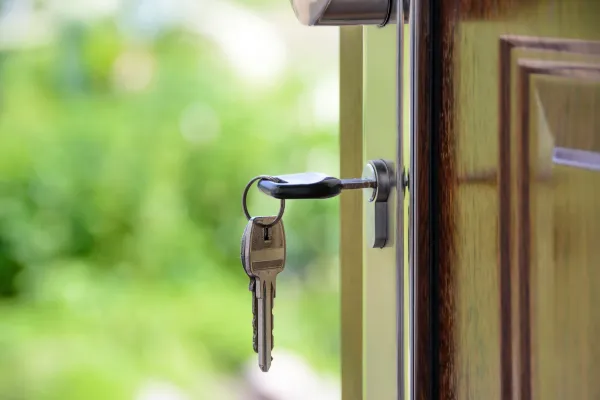With any property purchase or sale, there are plenty of legal issues to work through and it can be a minefield of paperwork to check, read and sign. Thankfully, that work can be taken on by a conveyancer who will endeavour to make the process as smooth as possible.
Without a conveyancer, the property transaction can stumble to a halt quickly. With that in mind, we delved into what a conveyancer does and how long it takes for them to do it.
What is a licensed conveyancer?
You will often see a conveyancer and solicitor under the same role and despite the differing job titles, they will do pretty much the same thing for you, just with a few slight differences. Both can offer the service you require for a property but when it comes to specific areas of law, a licensed conveyancer isn’t quite as qualified as a conveyancing solicitor.
If you hire a licensed conveyancer, they can help with both the sale or purchase of a property.
What is a conveyancing solicitor?
A conveyancing solicitor is well-versed in a broader range of property law and will be able to help with additional issues that may be present during the process of selling or buying property. This could include but is not limited to remortgaging, lease extensions, or transfer of equity.
Is there a difference between a solicitor and a conveyancer?
Aside from being qualified in certain additional legal matters, there are a few differences between what a solicitor and a conveyancer can do. A solicitor, for example, is not allowed to act for both the seller and buyer as per rules set out by the SRA. A conveyancer on the other hand can represent both parties. This can be seen as hugely beneficial, due to there being only one route of communication necessary. On the other hand, some people see that using just one person for both sides can lead to problems.
What will a conveyancer do?
A conveyancer will tie up all the loose ends to make sure everything about your property transaction is legal and completed correctly. Conveyancing can take time though so once you have made an offer on a property and it has been accepted, they will get to work as soon as possible so that all parties can have their property plans completed as soon as possible.
There are a variety of steps they will follow:
- Open the purchase file
- Establish if the property is either lease or freehold
- Organise the local searches
- Collect all relevant documents and complete any necessary forms
- Monitor sales/purchase progress and keep relevant parties informed
- Carry out any checks as requested and raise queries with the conveyancer from the other side
- Submit a deposit request
- Agree on exchange and completion dates
The work of the conveyancer doesn’t end here though. Once dates are agreed upon and the completion has gone through, they still have work to do.
What does a conveyancer do after completion?
If you are the buyer, the conveyancer will now be organising the stamp duty payments on your behalf. They will then check that all the relevant documents have been received by the land registry and that your mortgage lender has also received a copy of the deeds from them. Once completed, documents will then come through to you that confirm you own the property.
When selling, the conveyancer will wrap up any loose ends which may include paying your estate agent and the receipt of any legal documents. At the same time, the funds you are due to receive from the sale will also be sent through before the whole process is wrapped up.
How much are conveyancing fees?
Costs for conveyancing can differ and will vary on whether you are buying or selling. With disbursements, legal fees and a variety of other fees to factor in you can be spending well over £2,000 when purchasing a property and just under £2,000 when selling. However, the value of the property will largely determine the types of costs you could expect, as will the conveyancer you choose.
For example, the total fees on a house valued at £1.5 million will be much higher than those on a property valued at £400,000. This is why many people now look to fixed-fee conveyancing.
What is fixed fee conveyancing?
Fast becoming more and more popular, this type of conveyancing fee allows for those involved in the property purchase or sale to have a little more control over their finances. With the fee being fixed, it will not change, no matter the amount of work the conveyancer has to do. A price is reached before work begins and then agreed on.
This not only allows for an increased degree of budgeting but prevents to possibility of surprise costs that could be unaffordable cropping up.
You may also see some conveyancers offering a no sale no fee service which can be a huge incentive to many. It is just worth noting that whilst the conveyancing fees may be written off if the sale falls through, other fees will not. Third-party costs such as those incurred by the searches will still likely need to be paid.
Conveyancing can be an additional expense that you may wish you could avoid. Choosing an online estate agent like SOLD.CO.UK means you can. We make it possible for you to sell your house for free meaning all legal fees are covered. Simply speak to our team today and see how easy it is to sell your house.
















